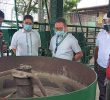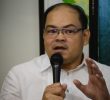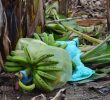Previously, the Bureau of Investments has set a ceiling of a billion pesos (USD 23.9M) as capital in order for a firm to avail of incentives. Now, with its lowered threshold capital, the government attempts to solve problems in the agriculture industry, a move criticized by farmers groups.
By JOHN RIZLE L. SALIGUMBA
Davao Today
DAVAO CITY, Philippines — To entice more investors, the government has lowered the threshold capital at eight million pesos (USD 200,000) for businesses seeking incentives which include, among others, domestic-selling for foreign investors, duty-free importation of equipment and tax holiday.
Oliver Butalid, governor of the Bureau of Investments (BOI), said in a press conference last week, “A Malaysian investor in palm oil wanted to sell domestically. Under the old rules they (investors) have to export. He could not qualify under the rule of domestic-selling because he has to have a pioneer status and (the company must be) foreign-owned.”
Previously, the BOI has set a ceiling of a billion pesos (USD 23.9M) as capital in order for a firm to avail of incentives. Now, with its lowered threshold capital, the government attempts to solve problems in the agriculture industry, a move criticized by farmers groups.
Butalid said the main problem is that small farmers cannot afford the facilities needed during the harvest and post-harvest period. “The usual solution was to give tractors and drying facilities to the farmers. But, they are in the business of farming and not in managing the processing facilities. Thus, it is not sustainable,” he said.
But, farmers in Davao City disagreed with Butalid on how the agriculture problem can be resolved. To them, it has always been the question of land ownership and sustained government support.
“How can farmers improve their lives when in the first place, they remain tenants or squatters on their own lands? Farm inputs and machineries have always been the property of capitalists. Government subsidy is practically lacking,” said Pedro Arnado of the peasant group Kilusang Magbubukid ng Pilipinas.
In his article on President Noynoy Aquino’s second year of presidency, Sonny Africa, Executive Director of think tank Ibon Foundation, said that the agriculture and industry sectors slowed substantially from 2011.
“Growth of agriculture dropped from 4.4% last year to just 1% and of industry from 7.3% to just 4.9 percent. Yet these are the sectors that are supposed to create the most jobs, have the greatest productivity and be the main drivers of economic growth,” said Africa as he scored the land distribution rate under Aquino.
From July 2010 to September 2011, only 13,819 hectares of land per month were distributed.
“This is just one-third of the 38,229 hectare per month average under former President (Fidel) Ramos,” Africa pointed out.
In a 2010 report by economywatch.com entitled, “Philippines Rural Development and Agrarian Reforms,” the group said:
“When the chunks of the agricultural land were under the control of the landowners, they put them on rent to the farmers for cultivation. Hence, the tenancy rates in the Philippine rural areas existed and varied between 50 to 70 percent. This made the landownership somewhat monopolistic in nature in Philippines, where wealth concentrated in the hands of the rich and powerful landlords, while the peasant classes were pushed towards poverty.”
OFWs as businessmen
Meanwhile, Butalid also proposed for the Overseas Filipino workers, who usually invest in retail stores or tricycles, to invest in new models of business in agriculture instead.
“OFWs coming home could invest in tractor-rental business. Or, they could pool their money to 200,000 dollars. With that amount, they can put-up a post-harvest or mechanized harvest facility which can cater to five towns,” Butalid said.
The mechanized harvest facility could improve the farmers’ productivity. “We will give them (OFWs) support for duty-free importation and income-tax holiday,” Butalid said.
However, migrants’ group Migrante sees the idea as not reflective to the situation of majority of our OFWs.
“OFWs are not also well-versed with agriculture and in running a business,” said Migrante-Davao’s Lito Estrera.
He said, it’s important that OFWs must be consulted, adding that, the Aquino government should institute genuine reforms for the OFWs and majority of the people. (John Rizle L. Saligumba/davaotoday.com)
World









